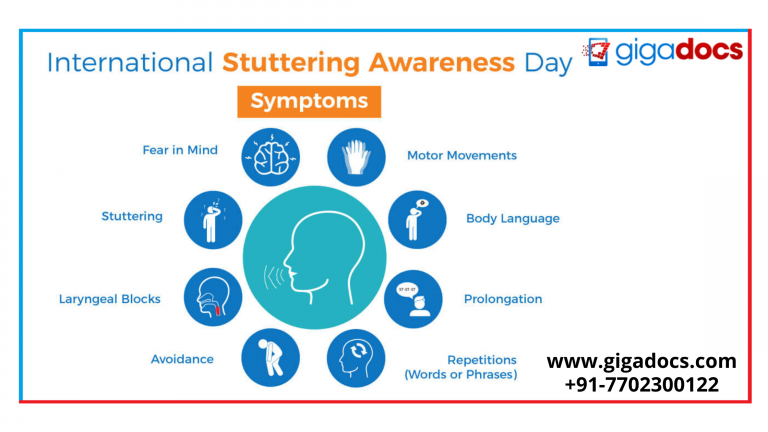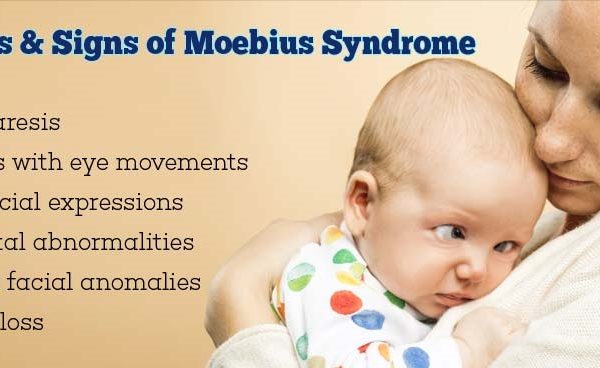Stuttering is a type of speech problem characterized by dysfluent or stammering speech and disruptions in verbal flow. Stutterers frequently repeat words and syllables. They may also speak at an inconsistent rate, with numerous pauses or hesitations.
Stuttering is frequent in children aged 2 to 6 and usually goes away on its own. However, people with stuttering speech which affects roughly 1% of adults, may be impacted for the rest of their lives. People who stammer may have social anxiety, fear public speaking or worry that their stuttering may affect their employment or school performance.
Stuttering is characterized by the repetition of certain sounds, syllables, or words which range from mild to severe. The problem can be so challenging for a small percentage of people. They may be hesitant to communicate, and others may note that their speech is unusual.
Stuttering can be subtle that in some cases it may even go unnoticed. Most people who stutter, on the other hand, fall somewhere in the middle. They stutter when speaking and repeating syllables.
Types of Speech Disorders
| Developmental stuttering | The most prevalent type of stuttering is developmental stuttering. It’s common among toddlers and preschoolers starting to speak, and it usually goes away on its own. Five to ten percent of youngsters stutter at some point in their lives, and at least seventy percent of them outgrow it. However, stuttering may continue to be a problem in adulthood for the remaining 25%. |
| Neurogenic stuttering | Neurogenic stuttering develops following a brain injury, head trauma, or stroke. This type of stuttering happens when the brain is injured, making it harder to coordinate the various parts of the brain involved in speech production. |
| Psychogenic stuttering | Caused by emotional trauma or intense stress. |
Cause of Stuttering and Stammering
The precise causes of stuttering are unknown. However, few studies have linked stuttering to hereditary genes since in a few cases it runs in the families. The following are some possible causes-
- Emotional Stress- Psychogenic stuttering can be caused by severe emotional distress. People with a social anxiety disorder (SAD), for example, may stutter in unpleasant social environments.
- Stroke-Brain damage can result in neurogenic stuttering.
Stuttering and Stammering Symptoms
- Repeating or prolonging sounds
- Blocks when speaking
- Omitting words
- Substituting words
- Circumlocution (an attempt to rearrange words in a sentence)
- Adding extra sounds or speech fillers such as “um” or “uh”
- Elongating certain words or sounds
- Frustration when trying to talk
- Hesitation before beginning to speak
- Refusing to speak
- A strained or tense voice
10 Famous Personalities with a Stutter
Read and get inspired from the incredible stories of famous personalities who have had a stutter.
| Joe Biden | As a youth, the US President battled shuttering by reading Yeats and Emerson in his bedroom while holding a torch lighting up his face. |
| Lewis Carroll | The author of “Alice’s Adventures in Wonderland” had a stutter. Carroll wrote fluent fantasy stories that helped him overcome his lifelong stammer. |
| King George IV | The last monarch of India under British rule began stuttering when he was eight years old. He had a challenging time with the letter “k,” which was ironic given his title of King of England. |
| Marilyn Monroe | The actor stuttered as a child and in high school for two years. She overcame it by following a speech therapist’s recommendation to speak in a throaty tone that became one of her acting signatures. |
| Alan Turing | The mathematician who cracked the Nazi Enigma code during World War II, had a stuttering and stammering problem. |
| Elvis Presley | The “King of Rock and Roll” faced stuttering at a young age. Presley struggled with words beginning with “w” or I according to the Stuttering Foundation. |
| James Earl Jones | The actor who played Mufasa in “The Lion King” and Darth Vader in “Star Wars” had such a terrible stutter that he couldn’t speak for eight years. By reading poetry to his class, he learned to work with it. |
| Nicole Kidman | As a child, the Moulin Rouge actor stuttered. Everyone used to encourage her to calm down and think about what she would say when she was a kid. |
| Tiger Woods | As a child, the former world champion golfer stuttered. In a letter, Woods wrote to a young boy who was struggling with his stammer, “I understand what it’s like to be different and sometimes feel out of place. As a child, I used to stutter and would talk to my dog, who would sit and listen until he fell asleep.” Woods took a two-year class and learned to cope with it. |
| Ed Sheeran | The ‘Shape of You’ and ‘Perfect’ singer tried speech therapy and homeopathy to treat his stutter, but rapping along to Eminem helped the most. |
Stuttering and Anxiety
Many people who stutter find it challenging to talk, and many social interactions can appear to be more demanding, all of which can negatively impact mental health. Anxiety is a typical problem for those who stutter, as they may discover that speaking causes them distress, which can lead to other problems. Anxiety and depression frequently co-exist, and if either is left untreated, it can lead to dangerous consequences.
In social circumstances, stuttering and stammering can cause emotions of humiliation. If you stutter, you may experience worry, low self-esteem, and awkwardness due to your speech problems which affects almost half of adult stutterers. Adults with stuttering speech can benefit from the following tips:
Coping with Stuttering
There are some things you or your child can do to help.
- Avoiding Criticism or Corrections- It is one of the most effective coping mechanisms. When a child or you starts stuttering, even asking them or yourself to “slow down” can draw unwanted attention to that behavior. It can cause self-consciousness, which can aggravate stuttering.
- Acceptance and Support- Practice self-compassion and acceptance; if you or your child stutters, don’t take it personally; instead, focus on being positive and encouraging as a parent.
- Create a Relaxing Atmosphere- Make sure your immediate surroundings are peaceful and relaxing.
| International Stuttering Awareness Day 2021 On October 22nd, the International Stuttering Awareness Day is observed to raise awareness about stuttering, which affects more than 70 million individuals worldwide, or one percent of the population. The objective of this day is to raise awareness about the problems and minimize the stigma attached to it. |
Stuttering Therapy and Stuttering Treatment
It’s also vital to take care of yourself and pay attention to your feelings. If you’re starting to feel worried, have a tight chest, a quick heartbeat, unusual breathing, fidgetiness, or a lack of attention, talk to a speech-language therapist about how to deal with it. It can be frightening to seek treatment initially. Anxiety typically goes hand in hand with stuttering and may lead to depression. Thus, it’s critical to take the essential precautions to defend yourself.
Diagnosis and Stuttering Help with Gigadocs
A speech-language pathologist (SLP) or another health professional with training in the evaluation of speech-language disorders is usually the one to identify stuttering. There is no specialized stuttering test. Instead, a speech pathologist will consider a variety of factors, including:
- Age
- Symptom’s duration
- Stuttering behaviors
- The presence of other language problems
The speech therapist will try to assess whether the stuttering will persist or fade away as the person grows older. Following the diagnosis, the professional will give therapy recommendations depending on the individual’s stammering state. Gigadocs digital healthcare app can help you find the best speech therapists around you. All you need is to download the Gigadocs app, make your profile, and book specialists, and share your or your family member’s speech problems at a time convenient to you. Follow the steps to download the Gigadocs app–
Download the Gigadocs app to collect points and redeem it on your consultation on Gigadocs:
- IOS App – apple.co/2W2iG4V
- Android App – bit.ly/33AQoRC
To schedule a demo e-mail, at info@gigadocs.com




